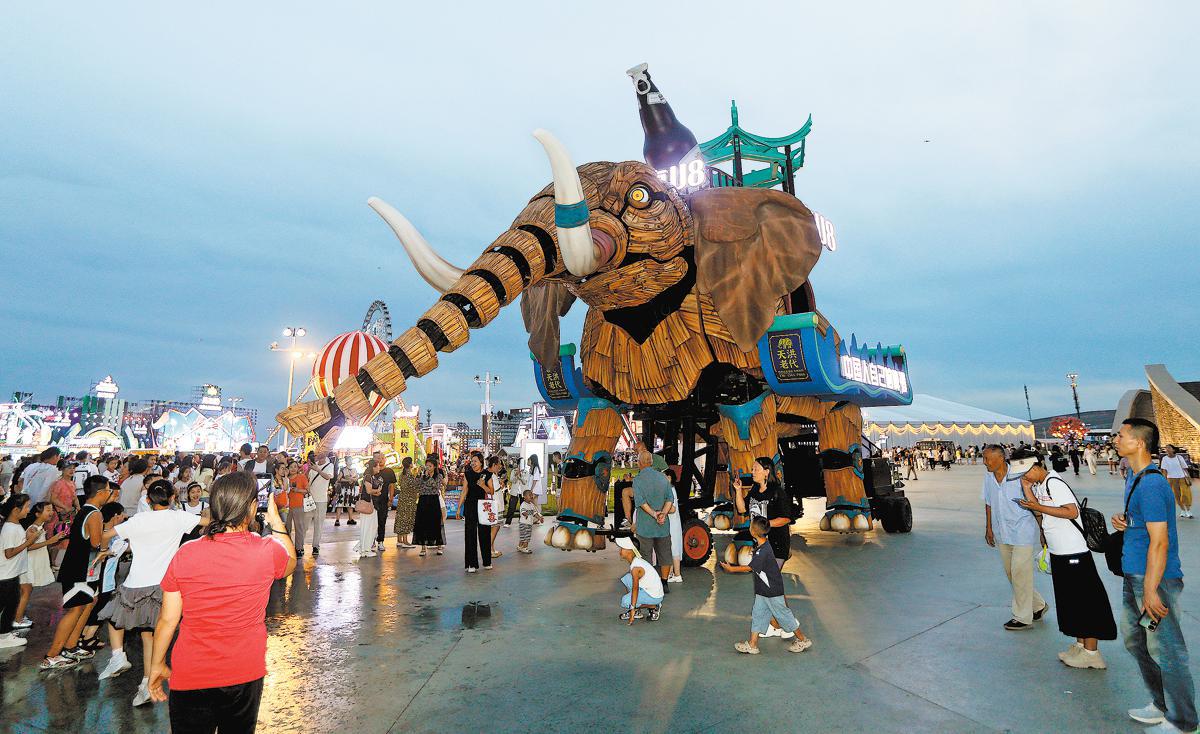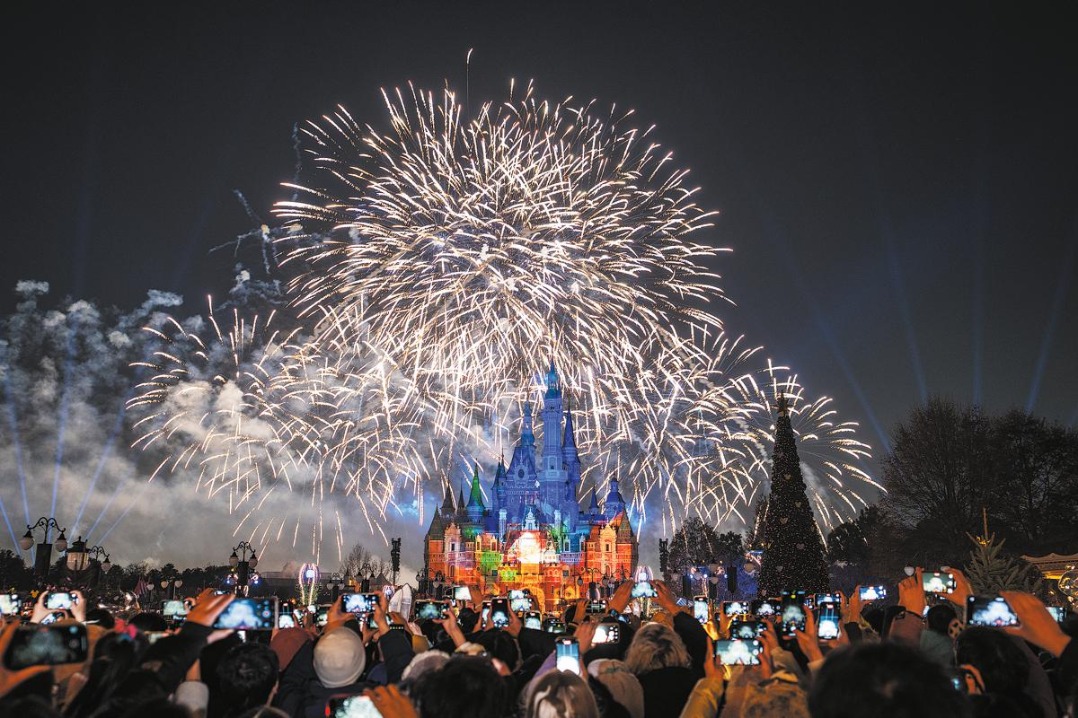Nighttime economy drawing in eager consumers
Expansion of after-dusk activities promoting diversification of consumption formats, encouraging discretionary spending, and sustaining growth momentum in nation


Nighttime dining, shopping and travel are thriving across China this summer, injecting fresh momentum to economic growth at a time when the country has prioritized consumption as its top priority this year.
The market size of China's nighttime economy has so far surpassed 50 trillion yuan ($7 trillion), said marketing consultancy Zhiyanzhan.
More restaurants have extended business hours and launched delivery services to attract late-night diners and increase revenue.
Huda Restaurant, a popular crayfish eatery in Beijing's bustling Guijie Street, is operating four outlets in the same area, cumulatively serving more than 6,500 customers daily on average. During peak hours on some nights, customers sometimes have to wait in line for three hours, according to the restaurant.
"Tourists are often unable to wait that long to dine in. Some choose the takeaway option, or order deliveries to their hotels. Some 70 percent of our takeout orders come from nearby hotels, as many tourists tend to order deliveries at night after their daytime sightseeing in the city," said Zhang Shengtao, deputy general manager of Huda.
"We take food delivery platforms as an important supplement to our operations, as the platforms allow customers to search for our restaurant from different channels. With no increase in the number of staff members and no change in restaurant areas, delivery services can help raise order volumes and lead to profit growth," Zhang said.
The restaurant chain said diners aged between 25 and 39 account for a large share of its total customers, while consumers opting for deliveries are mainly aged between 18 and 35.
Hong Yong, an associate research fellow at the Chinese Academy of International Trade and Economic Cooperation, said the availability of nighttime dining meets the demand for late night snacking among urban white-collar employees and many young consumers, especially as more people stay up late, work overtime, or venture out for social entertainment, and late night dining gradually becomes a part of their daily routine.
"Nighttime economic activities such as dining, night tours and shopping provide richer consumption scenarios, and meet consumers' demand for leisure and entertainment, social interaction and emotional release," Hong said.
"The expansion of nighttime consumption scenarios will help promote the diversification of consumption formats, encourage higher frequencies of spending, effectively stimulate domestic demand and promote sustained economic growth momentum," he added.
























